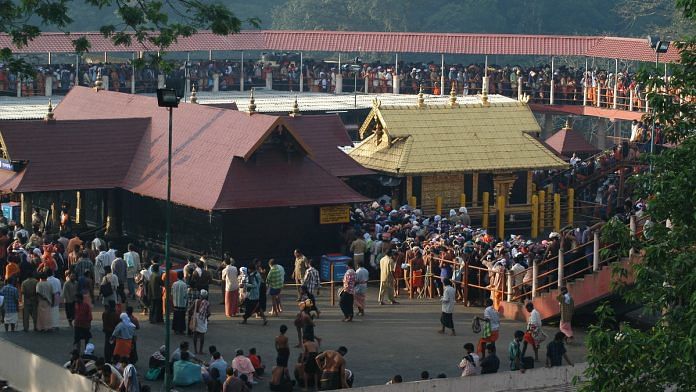Supreme Court’s Sabarimala judgment shows that a woman’s fundamental rights are not inferior to that of a man’s.
In the last few days, the Supreme Court has unequivocally held that constitutional morality trumps social morality and traditional practices. In doing so, it has also shown a mirror to the government and citizens through its assertion that we finally have a modern judiciary. It doesn’t shy away from passing orders and judgments that may not be to the liking of some who continue to be guided by the mores of colonial and feudal era practices.
So, what if one or more judges – as Justice Indu Malhotra did in the Sabarimala case today – continue to stick to the notion that rationality cannot be brought into the matters of religion? It should gladden our hearts that they have proved to be in a minority along with those who continue to believe that women are somehow inferior to men. It is clear that patriarchy is on its last legs and the Supreme Court is doing its bit. The time has come for the naysayers to acknowledge that.
Also read: Women have a right to pray, can now enter Sabarimala Temple, rules Supreme Court
In deciding that women of all ages have the right to enter Kerala’s Sabarimala Temple, the top court has put an end to a controversial, centuries-old tradition. It ruled against the contentious clause in the Kerala Hindu Places of Public Worship (Authorisation of Entry) Rules, 1965, which provided legal backing to this restriction.
This is not an isolated ruling. The court is bringing down forbidden bastions that kept women out. Remember, it was the Supreme Court, which forcefully prodded the management of Mumbai’s Haji Ali Dargah Trust to allow women to enter the sanctum sanctorum. Also, women’s entry into Ahmednagar’s Shani Shingnapur Temple became possible only due to the intervention of the courts.
The judgment in the Sabarimala case also underscores the fact, once again, that a woman’s fundamental rights are not inferior to that of a man’s, and that she has every right to enter a public place that is open to men – that women are as much part of the “We the People” pledge as men.
Also read: Lawyers argued women are untouchables at Sabarimala, because Constitution left term vague
What is also very significant in the court’s opinion is that it has expanded the scope of Article 17 of the Constitution, which deals with the abolition of untouchability and makes it “an offence punishable in accordance with law”. While some may say it has taken our top court too long to understand that in denying menstruating women entry into the Sabarimala temple, the temple administration was practicing untouchability, one can’t but applaud the court for finally doing that.



